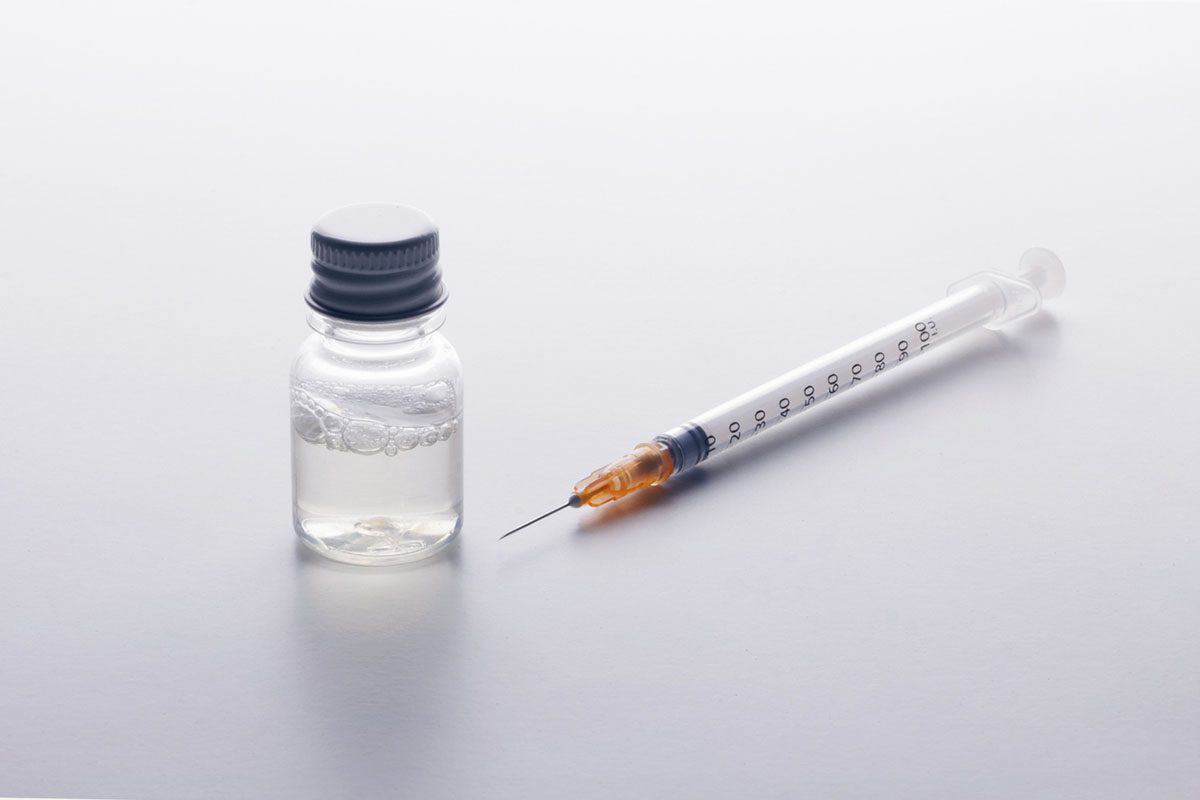Because this piece does not have an abstract, we have provided for your benefit the first 3 sentences of the full text.
To the Editor: Urine drug screens are routinely performed by psychiatrists, internists, and family medicine physicians. Most of these drug tests are for screening and are followed by confirmatory gas chromatography/mass spectrometry (GC/MS) tests. Periodically, GC/MS tests can have false-positive results.
I Have Never Used Methamphetamine, But My Urinalysis Says I Do
To the Editor: Urine drug screens are routinely performed by psychiatrists, internists, and family medicine physicians. Most of these drug tests are for screening and are followed by confirmatory gas chromatography/mass spectrometry (GC/MS) tests. Periodically, GC/MS tests can have false-positive results. Such results could have clinical implications for physicians.
Case report. Mr A is a 51-year-old white man with a past psychiatric history of bipolar disorder and opioid use disorder who presented to the clinic on buprenorphine/naloxone (8-2 mg film, 3 films sublingually daily) maintenance therapy. Other medications included gabapentin, lamotrigine, lithium, and olanzapine. The patient had been doing fairly well clinically and was compliant with his visits. Mr A would provide a urine drug screen (antigen and antibody test) specimen, which would then be sent out for a confirmatory GC/MS test.
Over the past few months, both his urine drug screens and confirmatory GC/MS tests were positive for methamphetamine. Throughout this time, the patient denied history of amphetamine use, remained compliant with follow-up appointments and medications, and showed no clinical signs of amphetamine use. After extensive questioning, Mr A revealed he was using over-the-counter Vicks VapoInhaler for ongoing respiratory discomfort. He reported that he used the medication as needed daily and that he started it shortly before his consecutive urine drug screens. Soon after stopping the Vicks treatment, his urinalysis was no longer positive for methamphetamine.
Urine drug screen immunoassays are a quick and inexpensive method for determining the presence of many drugs of abuse.1 Amphetamines and methamphetamines are commonly included on routine urine drug screens.1 A positive amphetamine or methamphetamine urine drug screen should be followed by a confirmatory GC/MS laboratory test for better characterization of the offending compound.
There are many well-demonstrated causes of amphetamine false positives on both urine drug screens and the confirmatory GC/MS.1-4 Common medications that may produce a false-positive result include pseudoephedrine, labetalol, bupropion, trazodone, and chlorpromazine.1,5 Whether or not the false-positive result affects the initial urine drug screen or the confirmatory GC/MS depends on the compound. The GC/MS test is generally capable of ruling out false positives from the initial urine drug screen.1 In 1 specific instance, l-methamphetamine, the stereoisomer to the psychoactive d-methamphetamine, is responsible for the positive drug screening. L-methamphetamine is the active ingredient in the nasal decongestant Vicks VapoInhaler.2 It is also a product of the metabolism of selegiline.6 Current routinely available urine screening and confirmatory testing are not stereoselective for the isomers of methamphetamine and amphetamine. Thus, to distinguish between the l– and d– isomers, chiral chromatography must be employed.5 Chiral chromatography is not a modality readily available to many laboratories performing the urinalysis, although there have been developments in affordable assays capable of stereoselectivity.7 Stereoselectivity is of particular importance in instances in which the presence of l-methamphetamine yields a positive drug screen result. As was the case with Mr A, it can be difficult to determine the causes of false-positive results. The multitude of compounds causing false positives in common drug screening reiterates the need for careful history taking. Comprehensive medication and supplement lists must be obtained, as seemingly innocuous compounds and routine medications can adversely affect the treatment of compliant patients.
References
1. Saitman A, Park HD, Fitzgerald RL. False-positive interferences of common urine drug screen immunoassays: a review. J Anal Toxicol. 2014; ;38(7):387-396. PubMed CrossRef
2. Smith ML, Nichols DC, Underwood P, et al. Methamphetamine and amphetamine isomer concentrations in human urine following controlled Vicks VapoInhaler administration. J Anal Toxicol. 2014;38(8):524-527. PubMed CrossRef
3. Marin SJ, Doyle K, Chang A, et al. One hundred false-positive amphetamine specimens characterized by liquid chromatography time-of-flight mass spectrometry. J Anal Toxicol. 2016;40(1):37-42. PubMed CrossRef
4. Poklis A, Moore KA. Response of EMIT amphetamine immunoassays to urinary desoxyephedrine following Vicks inhaler use. Ther Drug Monit. 1995;17(1):89-94. PubMed CrossRef
5. Moeller KE, Lee KC, Kissack JC. Urine drug screening: practical guide for clinicians. Mayo Clin Proc. 2008;83(1):66-76. PubMed CrossRef
6. Albertson TE. Amphetamines. In: Olson R, ed. Poisoning & Drug Overdose, Chapter 8. New York, NY: McGraw-Hill Companies; 2012.
7. Newmeyer MN, Concheiro M, Huestis MA. Rapid quantitative chiral amphetamines liquid chromatography-tandem mass spectrometry: method in plasma and oral fluid with a cost- effective chiral derivatizing reagent. J Chromatogr A. 2014;1358:68-74. PubMed CrossRef
aKansas University Medical Center, Kansas City, Kansas
bMidwestern University, Downers Grove, Illinois
Potential conflicts of interest: None.
Funding/support: None.
Patient consent: The patient provided consent to publish this report, and information has been de-identified to protect anonymity.
Published online: October 18, 2018.
Prim Care Companion CNS Disord 2018;20(5):17l02129
To cite: Sethi R, Din A, McAllister R, et al. I have never used methamphetamine, but my urinalysis says I do. Prim Care Companion CNS Disord 2018;20(5):17l02129.
To share: https://doi.org/10.4088/PCC.17l02129
© Copyright 2018 Physicians Postgraduate Press, Inc.
Enjoy this premium PDF as part of your membership benefits!





